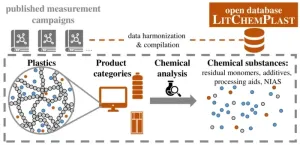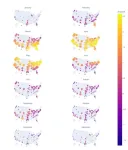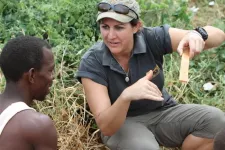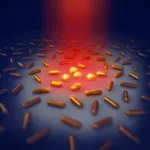A simulation study identifies robust social norms that sustain cooperation in costly reputations
2024-10-29
(Press-News.org)
A groundbreaking study led by Prof. Dr. Hitoshi Yamamoto (Rissho University) and his collaborators from, Soka University, Koriyama Women’s College, and the RINRI Institute has made significant strides in the field of indirect reciprocity: a key mechanism for sustaining cooperation in human societies. Their research unveils new insights into the social norms that protect cooperative behaviour from defector invasion and reputation costs, thereby deepening our understanding of how large-scale societies maintain stability. The results of the study were published in Scientific Reports.
Indirect reciprocity is characterised by cooperative behaviour being returned by third parties rather than the original recipient, as is the case with direct reciprocity. While previous studies have largely focused on the costs of cooperation, this research shifts the spotlight to the costs associated with reputation management—a vital, yet underexplored, factor in cooperation dynamics.
Prof. Dr. Yamamoto and his team employed an agent-based simulation to explore the resilience of the "leading eight" social norms. These norms have been identified as fundamental to stabilizing cooperation in indirect reciprocity. Through evolutionary computation method, the team demonstrated that two norms stand out as particularly robust against defector invasions and reputation costs.
The study found that four of the leading eight norms exhibit strong resilience against defectors due to their neutral stance on justified defection. These norms do not penalize justified defection, allowing them to protect cooperative behaviour even in the face of defector invasions. Additionally, the research revealed that another set of norms resists reputation costs by negatively evaluating unjustified cooperation. This allows societies to exclude "free-riders" who cooperate without contributing to reputation-sharing efforts, ensuring that cooperation remains stable even under costly reputation systems.
The study highlights the importance of understanding the mechanisms behind reputation-sharing in large societies and encourages further exploration into the costs and benefits of these systems. By identifying norms that can withstand both defector invasion and reputation costs, the research opens the door to more resilient cooperative structures in both human societies. Prof. Dr. Yamamoto, the lead author, emphasizes: "Our findings challenge the conventional focus on direct costs of cooperation by demonstrating that reputation costs play a critical role in sustaining large-scale cooperation. This insight provides a new avenue for research into how societies can foster and maintain cooperative behaviour."
:
Clarifying social norms which have robustness against reputation costs and defector invasion in indirect reciprocity
Hitoshi Yamamoto, Isamu Okada, Tatsuya Sasaki & Satoshi Uchida
Scientific Reports volume 14, Article number: 25073 (2024)
https://doi.org/10.1038/s41598-024-76168-5
END
[Attachments] See images for this press release:
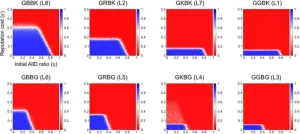
ELSE PRESS RELEASES FROM THIS DATE:
2024-10-29
An international coalition of researchers from the United States and Italy has discovered a novel strain of cyanobacteria, or algae, isolated from volcanic ocean vents that is especially adept at growing rapidly in the presence of CO2 and readily sinks in water, making it a prime candidate for biologically-based carbon sequestration projects and bioproduction of valuable commodities. This strain, nicknamed “Chonkus,” was found off the coast of the island of Vulcano in Sicily, Italy — an environment in which marine CO2 is abundant due to shallow volcanic vents. The discovery is described in a paper published ...
2024-10-29
Today, people increasingly seek non-alcoholic versions of beer or wine. Despite boasting different flavors, these two drinks share many aromas, which makes it difficult to produce alcohol-free versions that mimic the real thing. Researchers in ACS’ Journal of Agricultural and Food Chemistry report on a literature analysis and experiment to characterize the chemical compounds that give beer and wine their unique fragrances. They say their findings could aid the development of flavorful, non-alcoholic substitutes.
Food and beverage researchers are working to recreate the enjoyable aromas and flavors of beer and wine in alcohol-free substitutes. However, because both beer and ...
2024-10-29
Imagine harnessing the power of ocean currents to generate clean, renewable energy right off the coast of Southeast Florida. Florida Atlantic University’s Southeast National Marine Renewable Energy Center (SNMREC) has been awarded an $800,000 grant from the United States Department of Energy’s Water Power Technologies Office to enable the commercial readiness of ocean energy technologies.
SNMREC, in collaboration with a team of experts including The City of Lake Worth Beach Electric Utility, 3U Technologies, 48 North Solutions, IDOM Incorporated, Braid Theory, and the European Marine Energy Centre (EMEC), ...
2024-10-29
About this study: Plastics contain a vast number of chemicals, some of which greatly impact the environment and human health. However, information on the presence of individual substances in plastic products is oftentimes not publicly available. In a peer-reviewed study, set to be published on 29 October 2024, in Environmental Science and Technology Letters, a new publicly accessible database on chemicals measured in plastics is presented - LitChemPlast. The database contains over 3’500 substances measured in over 47'000 samples of plastic products across 372 studies.
Key findings:
• Contamination of recycled plastics:
The database shows that, due to ...
2024-10-29
Complaining about your allergies online might provide valuable data to researchers. Over 25% of Americans experience seasonal allergies, but how the prevalence of seasonal allergies varies across space and time remains obscure, in part because allergies seldom warrant visits to healthcare providers. Elias Stallard-Olivera and Noah Fierer mined Twitter (now X) posts and Google searches from 2016–2020 to extrapolate spatial and temporal allergy patterns. A natural language processing model sorted posts that indicated symptoms (e.g., “My allergies are really bad today!!”) from posts that include key words but did not indicate the presence of symptoms (e.g., “Gluten ...
2024-10-29
[11:00 GMT - 29 Oct 2024] A groundbreaking, nine-year study has revealed that elephants approaching small-scale farms in Kenya avoid beehive fences housing live honey bees up to 86% of the time during peak crop seasons, helping to reduce human-elephant conflict for local farmers and boost income. Link to images and video of the project available
Key findings include:
Beehive fences are a proven success in reducing human-elephant conflict in Africa.
Savannah elephants avoid beehive fences housing live honey bees up to 86% of the time during peak crop seasons.
Across all seasons and the entire study period, the fences deterred an annual average of 76% of 3,999 ...
2024-10-29
In the fight against antibiotic resistance, a new technology developed at Chalmers University of Technology, in Sweden, can be of great importance when, for example, hip and knee implants are surgically inserted. By heating up small nanorods of gold with near-infrared light (NIR), the bacteria are killed, and the surface of the implant becomes sterile. The researchers are now presenting a new study that increases the understanding of how the gold rods are affected by light and how the temperature in them can be measured.
Infections can occur during surgical procedures, with the risk increasing significantly when foreign materials, ...
2024-10-29
29 October 2024. Doha, Qatar – The World Innovation Summit for Health (WISH), an initiative of Qatar Foundation, has shortlisted 12 innovators for two awards within the 2024 WISH Global Healthcare Innovation Competition. Selected from more than 150 applications, the 12 will showcase their groundbreaking innovations to global policymakers and healthcare leaders at this year’s summit in Doha, 13-14 November.
In addition to the chance to receive one of two investment awards of US$10,000, shortlisted innovators will have access to mentoring sessions with industry experts to learn ...
2024-10-29
Discovery of cancer risk associations for six novel genes
Scientists at deCODE genetics/Amgen, and their collaborators have discovered six novel genes with rare germline variants that associate with cancer risk. The findings are published today in Nature Genetics under the title “Gene-based burden tests of rare germline variants identify six cancer susceptibility genes”.
A subset of cancers arises in individuals who are born with rare sequence variants that significantly alter their cancer risk. The discovery of such variants, like those in the BRCA1- and BRCA2 genes, has led to improved early cancer detection ...
2024-10-29
The unprecedented temperatures in the summer of 2022 caused more than 68,000 deaths on the continent, according to a study by the Barcelona Institute for Global Health (ISGlobal), a centre supported by the 'la Caixa' Foundation. A new study has now found that more than half - 56% - of the heat-related deaths in the summer of 2022 were related to human-induced climate change. According to the research, 38,154 of the 68,593 heat-related deaths in the summer of 2022 would not have occurred without anthropogenic warming.
The ...
LAST 30 PRESS RELEASES:
[Press-News.org] A simulation study identifies robust social norms that sustain cooperation in costly reputations


